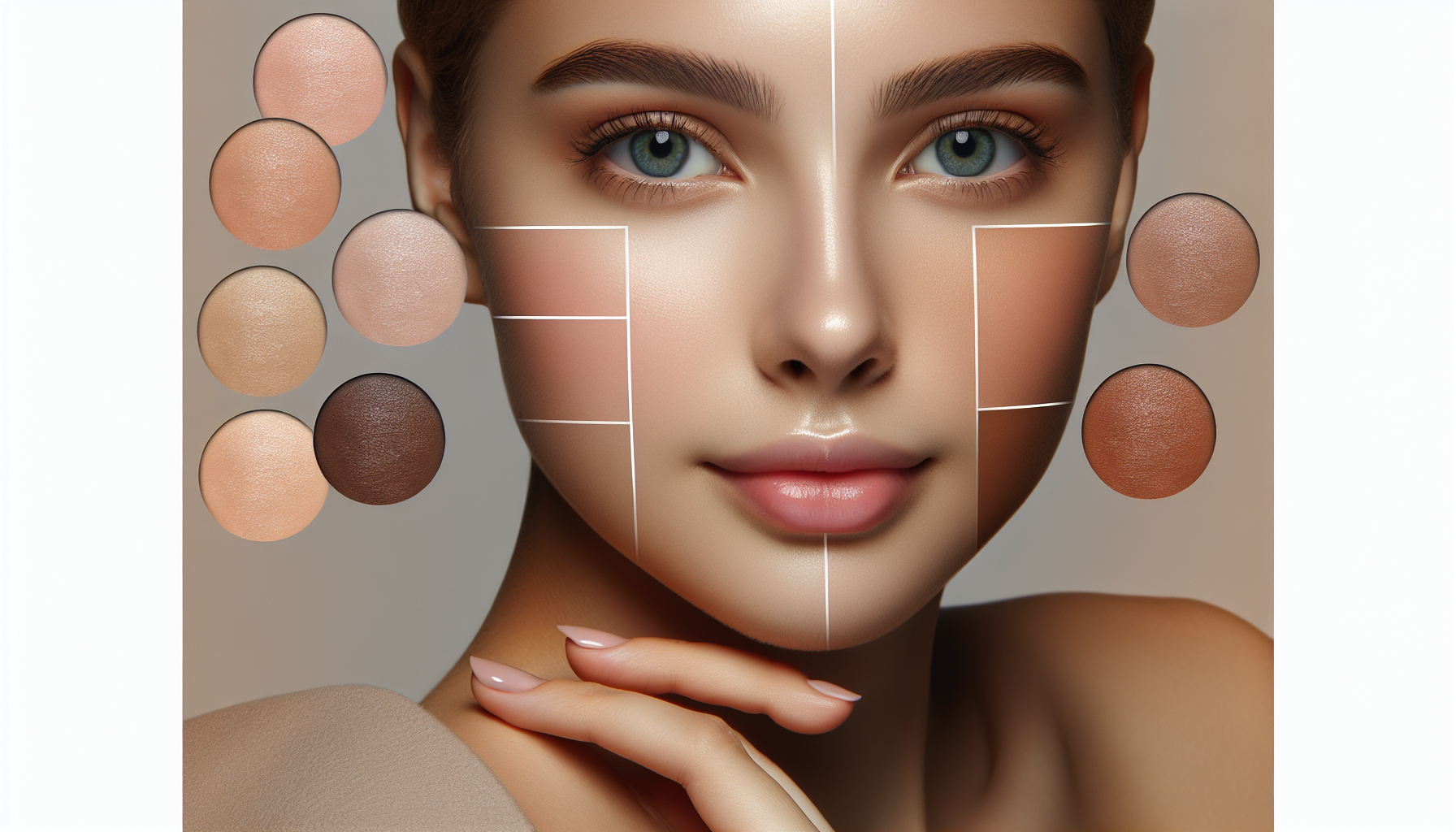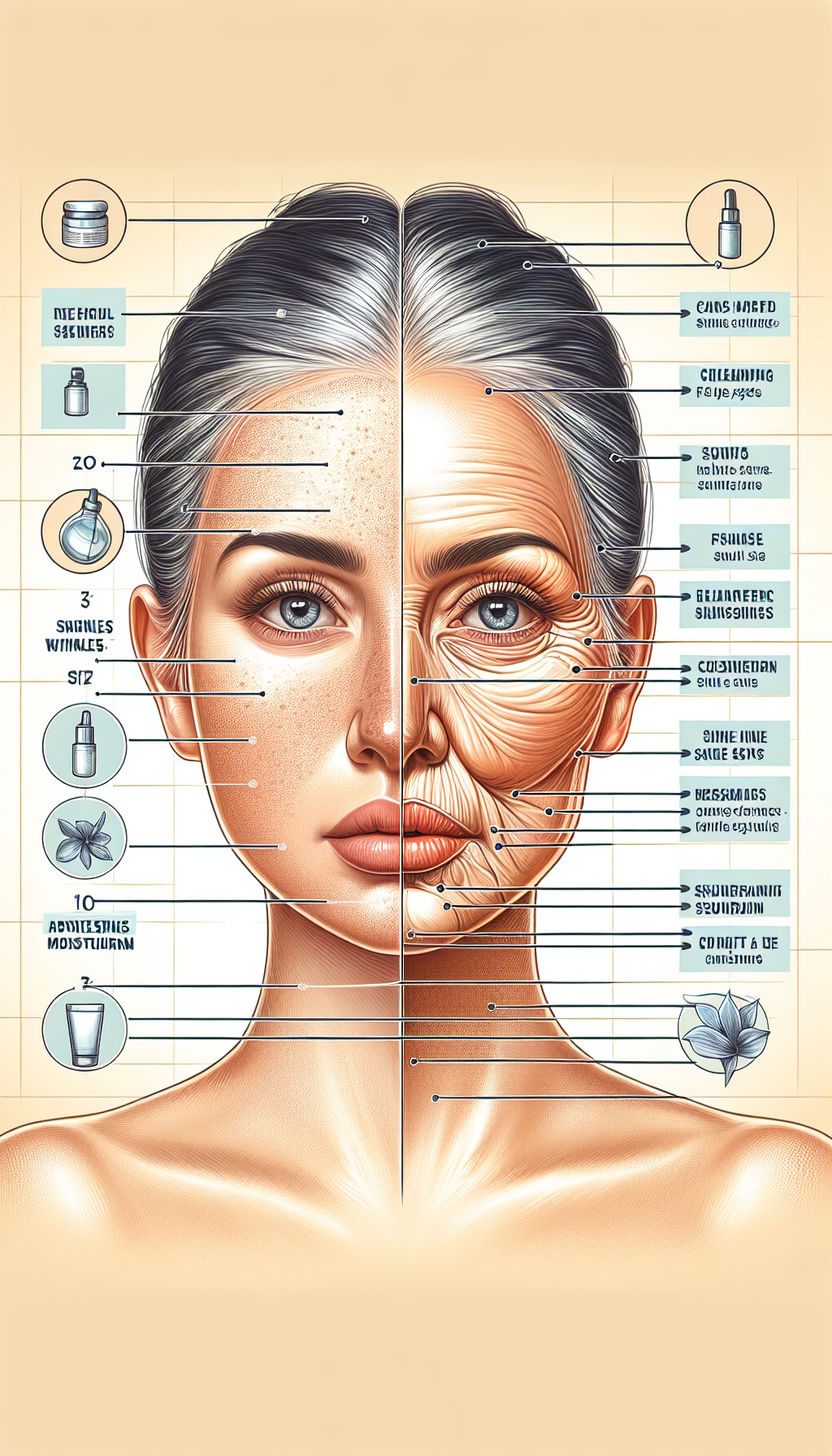Skin health is a crucial aspect of overall well-being, significantly affecting one’s quality of life. Common skin conditions can range from temporary and mild irritations to chronic diseases that require ongoing management. This comprehensive article aims to inform readers about the various skin conditions, their potential causes, treatment options, and how to maintain healthy skin.
The Spectrum of Skin Conditions
Skin conditions are incredibly diverse, affecting individuals of all ages and backgrounds. Some of the most prevalent skin issues include acne, eczema, psoriasis, and rosacea, each presenting with unique symptoms and challenges. Acne, for instance, is characterized by the presence of pimples, blackheads, and cysts, primarily affecting teenagers but can persist into adulthood. Eczema manifests as patches of itchy, inflamed skin, often in response to allergens or irritants. Psoriasis is marked by rapid skin cell turnover, leading to thick, scaly plaques, while rosacea is a chronic condition causing facial redness and sometimes acne-like bumps.
Understanding these conditions’ fundamental causes can greatly assist in managing their symptoms. Factors such as genetics, immune system irregularities, hormonal imbalances, and environmental triggers play significant roles in the onset and exacerbation of skin conditions.
Diagnosis and Treatment Strategies
An accurate diagnosis is the first step in effectively treating any skin condition. Dermatologists often use a combination of patient history, physical examination, and sometimes skin biopsies to identify the specific ailment. Once diagnosed, treatment options can be tailored to the individual’s needs.
For acne, treatments may include topical retinoids, antibiotics, and in more severe cases, isotretinoin. Eczema management typically involves moisturizers to maintain skin hydration and corticosteroid creams to reduce inflammation. Psoriasis treatments range from topical therapies to phototherapy and systemic medications that target the immune system. For rosacea, dermatologists may prescribe topical or oral antibiotics and recommend lifestyle changes to avoid known triggers.
Maintaining a consistent skincare routine is also pivotal. For comprehensive guidance, readers can refer to "Best Practices for Daily Skin Care Routines" which offers insights into creating an effective regimen adaptable to various skin conditions.
Integrating a Holistic Approach
While medications play a central role in managing skin conditions, a holistic approach to skin health can offer additional benefits. Diet and nutrition, for instance, have a profound impact on skin health. Incorporating anti-inflammatory foods and avoiding potential allergens can help in managing conditions like eczema and psoriasis. For more details on how diet influences skin health, "Nutrition and Skin Health: What to Eat for a Glowing Complexion" provides valuable information.
Stress reduction is another critical factor as stress can exacerbate many skin conditions. Techniques such as mindfulness, yoga, and adequate sleep can help manage stress levels, thereby improving skin health. To understand the connection between stress and skin, the article "The Effects of Stress on Your Skin Health" offers an insightful exploration of the topic.
Specialized Skin Care Considerations
Depending on the skin condition, certain adjustments may be necessary for one’s skincare routine. For sensitive skin, which may react adversely to standard products, special formulations are required to avoid irritation. Articles such as "Guidelines for Sensitive Skin Care and Reduction of Irritation" can help individuals with sensitive skin find suitable products and practices.
Furthermore, the role of hydration cannot be understated. Adequate water intake and the use of moisturizers are essential in maintaining the skin’s barrier function, particularly for conditions such as eczema and psoriasis. For more information on the importance of hydration, "The Role of Hydration in Maintaining Skin Health" delves into how to keep the skin well-hydrated.
External Resources for In-Depth Understanding
For readers seeking more niche and specific resources to support their understanding of skin conditions, several high-quality external websites provide valuable insights:
- The American Academy of Dermatology offers a wealth of information on various skin conditions, including identification, treatment, and prevention tips.
- Research on the gut-skin axis is shedding light on how digestive health impacts skin conditions. The National Center for Biotechnology Information provides access to studies exploring this connection.
- The Psoriasis and Psoriatic Arthritis Alliance is an excellent resource for those specifically dealing with psoriasis, offering advice on management and lifestyle adaptations.
Maintaining Overall Skin Health
Beyond addressing specific skin conditions, maintaining overall skin health is vital. This involves protecting the skin from harmful UV radiation, avoiding smoking, and managing factors that can lead to premature aging or exacerbate existing conditions. For more detailed information, the "Skin Health" section on Avix Health provides comprehensive advice on nurturing skin health.
In conclusion, understanding and treating common skin conditions require a multifaceted approach that includes proper diagnosis, tailored treatment plans, and a holistic view of health and lifestyle factors. By integrating these strategies, individuals can significantly improve their skin health and overall quality of life.



